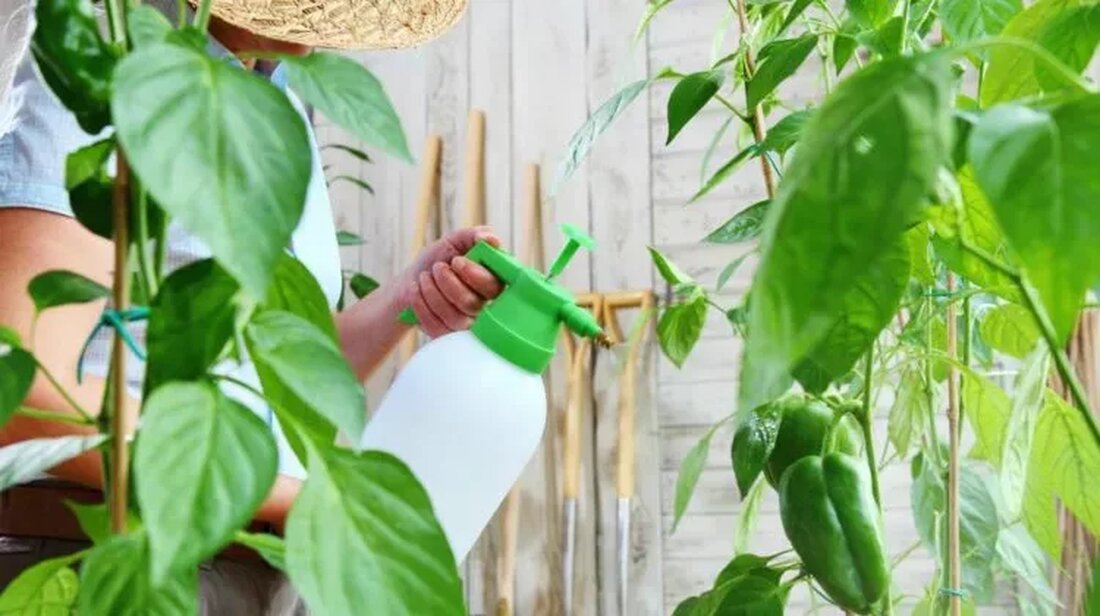ORGANIC Pesticides - 10 amazingly helpful, homemade organic pesticides
Natural BIO pesticides. Have you ever wondered what farmers did hundreds of years ago to ward off crop pests? Long before the invention of harmful chemical pesticides (yes, the kind linked to cancerous cell activity), farmers and households developed several means to remove insect infestations from their garden plants. In the following list you will find some preferred, natural, cost-effective and organic methods of making pesticides to use against insects in your home garden. Be sure to purchase certified organic ingredients, otherwise your pesticide will of course not be organic! 1. Neem Ancient Indians revered neem oil as a powerful, natural plant to ward off...

ORGANIC Pesticides - 10 amazingly helpful, homemade organic pesticides
Natural BIO pesticides. Have you ever wondered what farmers did hundreds of years ago to ward off crop pests? Long before the invention of harmful chemical pesticides (yes, the kind linked to cancerous cell activity), farmers and households developed several means to remove insect infestations from their garden plants.
In the following list you will find some preferred, natural, cost-effective and organic methods of making pesticides to use against insects in your home garden. Be sure to purchase certified organic ingredients, otherwise your pesticide will of course not be organic!
1. Neem
Ancient Indians revered neem oil as a powerful, natural plant to ward off pests. In fact, neem juice is one of the most powerful natural pesticides in the world and contains over 50 natural insecticides. You can make a natural pesticide spray using this extremely bitter tree leaf.
To make neem oil spray, add 1/2 liter of high-quality organic neem oil and 1/2 teaspoon of a mild organic liquid soap to two liters of warm water. Stir slowly. Pour into a spray bottle and use immediately.
Our recommendation: (link removed)
2. Salt spray
To treat plants infected with spider mites, mix 2 tablespoons of Himalayan crystal salt in 1 gallon of warm water and spray on infected areas.
Our recommendation: (link removed)
3. Mineral oil
Mix 10 to 30 ml of high-quality organic mineral oil with one liter of water. Stir and pour into the spray bottle. This organic pesticide works well for dehydrating insects and their eggs.
4. Citrus Oil & Cayenne Pepper
This combination works well on ants. Mix 10 drops of citrus essential oil with 1 teaspoon of cayenne pepper and 1 cup of warm water. Shake well and spray on the affected areas. Our recommendation: (link removed)
5. Soap, orange citrus oil and water
To make this natural pesticide, simply mix 3 tablespoons of organic liquid castile soap with 1 ounce of orange oil in 1 gallon of water. Shake well. This is a particularly effective treatment against slugs and can be sprayed directly on ants and cockroaches.
6. Eucalyptus oil
A great natural pesticide for flies, bees and wasps. Simply sprinkle a few drops of eucalyptus oil over where the insects are. They'll all be gone before you know it. Our recommendation: (link removed)
7. Onion & Garlic Spray
Finely chop 1 organic garlic clove and 1 medium organic onion. Add to 1 liter of water. Wait an hour and then add 1 teaspoon of cayenne pepper and 1 tablespoon of liquid castile soap to the mixture. This organic spray maintains its effectiveness for a week when stored in the refrigerator.
8. Chrysanthemum flower tea
These flowers contain a powerful plant chemical component called pyrethrum. This substance penetrates the nervous system of insects and renders them immobile. You can make your own spray by boiling 100g of dried flowers in 1 liter of water. Boil dry flowers in water for 20 minutes. Strain, let cool and pour into a spray bottle. It can be stored for up to two months. You can also add some organic neem oil to improve its effectiveness. Our recommendation: (link removed)
9. Tobacco spray
Just as tobacco is dangerous to humans, tobacco spray was once a commonly used pesticide to kill pests, caterpillars and aphids. Mix 1 cup of organic tobacco (preferably a brand that is organic and all-natural) in 1 gallon of water. Allow the mixture to harden overnight. After 24 hours the mixture should be light brown in color. If it is very dark, add more water. This mixture can be used for most plants, except those in the solanaceous family (tomatoes, peppers, eggplant, etc.).
10. Chile Pepper & Diatomaceous Earth
Grind 2 handfuls of dry chilies into a fine powder and mix with a cup of diatomaceous earth. Add to 2 liters of water and let sit overnight. Shake well before applying.If you know some easy recipes for making your own organic pesticides, we'd love to hear them. If you are concerned about your exposure to chemicals at home or in the environment, you should do a good cleaning. Here is the video tutorial. You can turn on subtitles and switch to German in the video settings at the bottom right. Our recommendation: (link removed)

 Suche
Suche
 Mein Konto
Mein Konto
